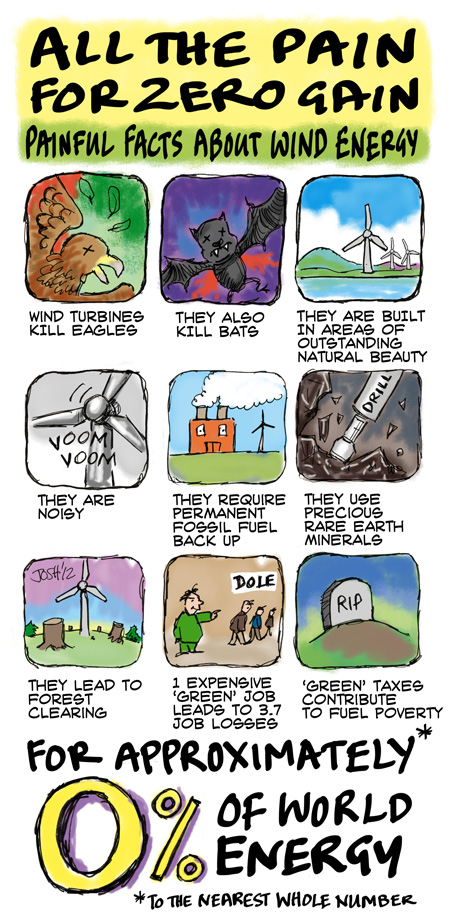Andrew Orlowski on the bad economic and technological decision by the British government to put so much reliance on wind power:
Two studies published this week calculate the astounding cost of Britain’s go-it-alone obsession with using wind turbines to generate so much of the electricity the nation needs.
Both studies make remarkably generous concessions that favour wind technology; the true cost, critics could argue, will be higher in each set of calculations. One study reckons that the UK can still meet its carbon dioxide emissions targets and save £140bn — but only if it dumps today’s inefficient hippie technology. The other puts the potential saving at £120bn — pointing out that the same amount of electricity could be generated using open cycle gas plants at one-tenth the cost of using wind turbines.
“There is nothing inherently good or bad about investing in renewable energy and green technology,” writes economist Professor Gordon Hughes — formerly of the World Bank and now at the University of Edinburgh. “The problem is that the government has decided to back a technology that isn’t ready for prime time, thus distorting the market.”
Hughes’ study — Why is Wind power so expensive? An economic analysis — is published by the Global Warming Policy Foundation today, and simply looks at the costs. The other study, by technical consulting group AF-Mercados, specifically looks at how to reduce CO2 in the cheapest manner — by incurring the least collateral economic damage. It’s called Powerful Targets: Exploring the relative cost of meeting decarbonisation and renewables targets in the British power sector. KPMG originally commissioned the study, but then got cold feet. Both come to similar conclusions: wind is astronomically expensive compared to other sources of energy — and consumers and businesses must pay a high price for the privilege of subsidising such an inefficient technology.
Update, 10 March: A lovely little cartoon from Watts Up With That on this topic:




